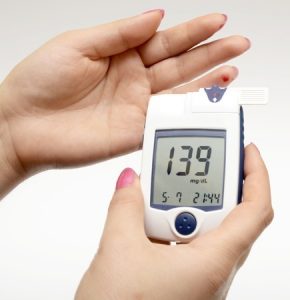
I am asked a lot if the sugar alcohols are safe sweeteners. You’ll also hear that products made with the sugar alcohols do not have artificial sweeteners in them. This is not true.
Sugar alcohols are artificial sweeteners. They are not natural sweeteners because they have been removed from their natural sources and restructured in a lab before being packaged for sale.
Sugar alcohols are natural if you eat them from their natural sources, like a piece of fruit, but if you buy them packaged on the grocery shelf, they have been removed from their sources and remade in the lab.
That said, sugar alcohols are better for you than aspartame, Splenda®, acesulfame-k, or any of the man-made, chemical, fake sugars. But, the sugar alcohols are a by-product of sugar found in plants.
Sugar + Alcohol Means Grey Area Carbs
Part of their structure chemically resembles sugar, and part is similar to alcohol – hence, sugar alcohol. To complicate matters more, these sweeteners are neither sugars nor alcohols.
In nature, sugar alcohols are a sugar byproduct refined by nature. In manmade products, sugar alcohols are a sugar byproduct refined by a person.
To me, the sugar alcohols fall into a “grey area” in the sweetener arena because they are actually carbohydrates (starches) more than they are sugars. The various sugar alcohols are typically used cup-for-cup (the same amount) as refined sugar, but they vary in sweetness, ranging from half as sweet to as sweet as sugar.
So, this makes them if-y in my book, and whether they are healthy for you depends upon your individual circumstances.
Sugar alcohols blend well with other sugars, so they are now commonly added to products such as gums, candies, mints, toothpaste, and mouthwash.
Please keep in mind that these “grey area” sweeteners can give you gastric distress if consumed in excess. This means chewing gum with Xylitol all day – everyday.
The Downside

The downside of the sugar alcohols is that some of the sugar and/or the alcohol may not be absorbed in your blood or broken down into fatty acids in your large intestines. This can cause carb cravings, sugar binges, and stomach irritation.
Hence, sugar alcohols typically cause gas and stomach pain.
People on low-carbohydrate diets and people with diabetes typically don’t respond well to the sugar alcohols. Sugar alcohols act as “trigger foods,” and this upsets blood sugar levels.
Your intestines will absorb the sugar and/or the alcohol, and this is what causes gas and laxative effects (cramping and diarrhea) similar to reactions to eating beans and some high-fiber foods. These symptoms depend, of course, on an individual’s sensitivity, health status, and what other foods are eaten at the same time.
If health reactions do occur, your body may be showing you its limit on how much sugar alcohols you can eat before it tries to “kick it out.” So pay attention to reactions like these.

The List
These are the sugar alcohols used in many products today:
1. Erythritol
2. Hydrogenated Starch Hydrolysates
3. Isomalt
4. Lactitol
5. Maltitol
6. Mannitol
7. Sorbitol
8. Xylitol
These sugar alternatives are definitely better for you than the toxic chemical sugars like aspartame, but use them conservatively, especially if you get stomach cramping, blood sugar spikes, or simple carb cravings.
Are sugar alcohols good or bad for you? Um, they’re if-y.
_____________
If you want to learn more about healthy living and disease prevention, contact me at janethull.com. Remember that you are never alone when you are looking for good health!
I look forward to supporting you on your journey to alternative health and wellness.
_____________
Disclaimer: This article is for informational purposes only, and is educational in nature. The FDA may not have evaluated some of the statements. This article is not intended to diagnose, treat, cure, or prevent any disease. Please discuss with your own, qualified health care provider before adding supplements or making any changes to your dietary program.
Before taking vitamins, consult your doctor; pre-existing medical conditions or medications you are taking can affect how your body responds to multivitamins.
You have our permission to reprint this article if you attribute us with a live back-link to this article and the youtube links. http://www.janethull.com/
_______________